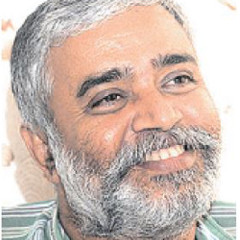A report published by the World Health Organization last week has sent shock waves among the healthcare community in India. About 81 percent of physicians practicing in rural areas and 42 percent of those practicing in urban areas do not have the basic qualifications to be a doctor. One in every three “doctors” have never received formal education beyond tenth standard.
The report is the first one about the number, deployment and educational qualifications of healthcare professionals working in India. The review is based on census data from 2001 but the changes in the last 15 years are unlikely to alter the findings because there was no radical interference in the public health sector in the period.
India has about 80 doctors, more than two dentists and more than 60 nurses per 1 lakh people. This number would have gone up in the last 15 years.
More than 77 percent of doctors practice modern medicine, while the others follow homeo, unani and ayurveda systems. A major share of these so-called doctors never received formal medical education. They call themselves doctors just because they have been treating patients.
Lessons for Kerala
Kerala fares better than the other states when it comes to health professionals. The state’s performance in the urban-rural ratio, doctor-nurse ratio and the share of Ayush doctors in the larger group of health professionals have been singled out in the WHO report.
Unlike the other states, Kerala has rarely seen a doctor’s assistant starting his own practice after a year or two.
Still, the Health Department does not have a clear idea on what transpires beyond the public sector. Kerala does not possess a system to monitor healthcare activities and treatment methods outside the network of government hospitals and health centers.
Kerala should collect data on its healthcare sector. The Registrar General’s office has compiled district-wise data of human resource in the healthcare sector as part of the WHO report. This data can be built upon.
The state has to put in place a system to ensure quality standards for hospitals and doctors and prevent the exploitation of patients. We have to ensure that the claims related to diseases and treatments are fair and objective. A comprehensive health policy is needed to bring in some clarity into all these aspects.
This is not going to be an easy task. The sector is known for its complexities and vested interests that can taint anyone who tries to interfere.
However, it is never too late to start the reforms in Kerala’s healthcare sector, which is plagued by commercial interests and unscientific practices. Let us hope that the Health Minister and Health Secretary could bring about the change we need.
(The writer is a member of the palliative care advisory council of the World Health Organization)

























